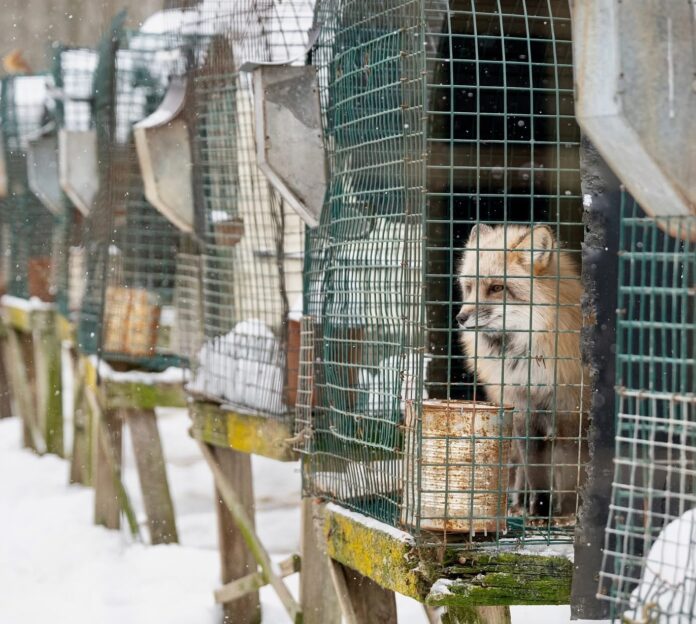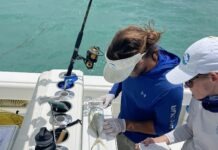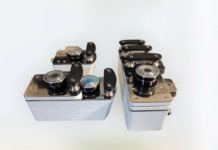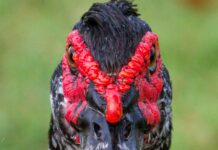
Hi friends. Reef the fox here with your weekly “Reef’s Report.” Two weeks ago, the Humane Society of the United States (HSUS) joined forces with Ohio authorities to rescue 330 animals from a fur and urine farm near Cleveland, Ohio.
This operation revealed the grim reality of fur farming and the collection of urine, which is used for hunting, dog training and wild animal deterrent for gardeners.
The situation came to light after the owner of Grand River Fur Exchange, Mark Gutman, died in late December 2024, leaving behind a property in crisis. Authorities stepped in and found unimaginable suffering. Foxes, raccoons, wolf-dog hybrids, skunks and coyotes were trapped in rusted wire-bottom cages, exposed to freezing temperatures without shelter. Many animals were missing body parts. Some had lost toes to the sharp wire flooring, while others had limbs or paws severed, likely by steel-jaw leg-hold traps discovered on the property. Emaciated and dehydrated, the surviving animals endured unspeakable neglect, while others were found dead, buried under layers of snow.
Gutman’s operation had been rooted in controversy for decades. In 2006, Gutman was involved in an incident where a bear escaped from its enclosure and attacked a neighbor. Gutman was attempting to clean the bear’s cage when the animal escaped. The bear then entered a neighboring property and attacked a woman, causing severe injuries. Following the attack, Gutman shot and killed the bear.
In 2011, Gutman faced legal action from the U.S. Department of Agriculture (USDA) for violations of the Animal Welfare Act (AWA). The USDA alleged that Gutman was operating as a dealer without the necessary AWA license. To settle the proceeding, Gutman consented to cease and desist from activities requiring an AWA license, including the sale of live wild or exotic animals for use as pets or for breeding purposes. He was assessed a civil penalty of $45,000, with $44,150 held in abeyance contingent upon compliance with the order. Additionally, Gutman and his associate, Jeri Lynn Poling, were disqualified for 10 years from obtaining or using an AWA license.
“Humane Society International has investigated fur farms around the globe and animal suffering and filth like we saw on this property are constants,” said P.J. Smith, fashion policy director for HSUS. “The U.S. fur trade has long operated in the shadows with zero oversight, and it’s very rare to see inside a U.S. fur farm, let alone be able to rescue the animals.”
This is the brutal truth of fur farming, an industry rooted in cruelty and exploitation. It’s not just a distant problem; this is happening right here in the United States. Millions of animals worldwide are subjected to lives of torment and violent deaths to meet the demand for fur. Whether new or vintage, wearing fur sends a clear message that this suffering is acceptable. It promotes a cruel and outdated practice that profits off the pain and death of innocent beings.
The surviving animals from Grand River Fur Exchange were placed with reputable rehabbers and sanctuaries in Ohio and nearby states.
Anywho, that’s all for this week. And, if you needed any more reminders to not buy or wear fur, this is a good one.
Until next time, Reef, over and out!

























